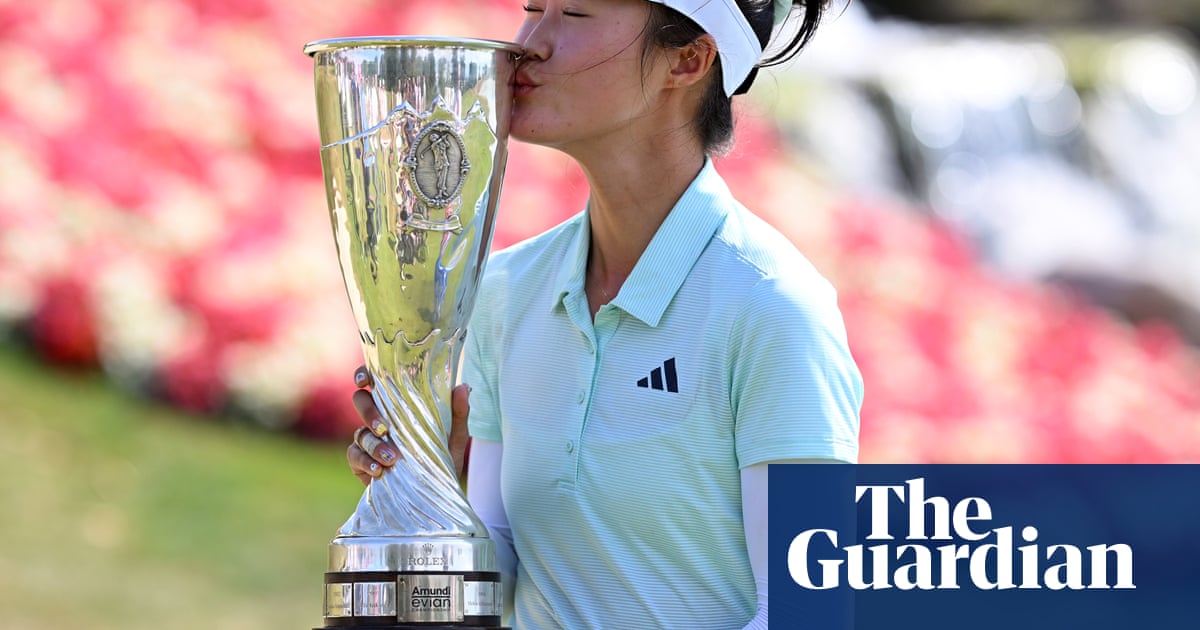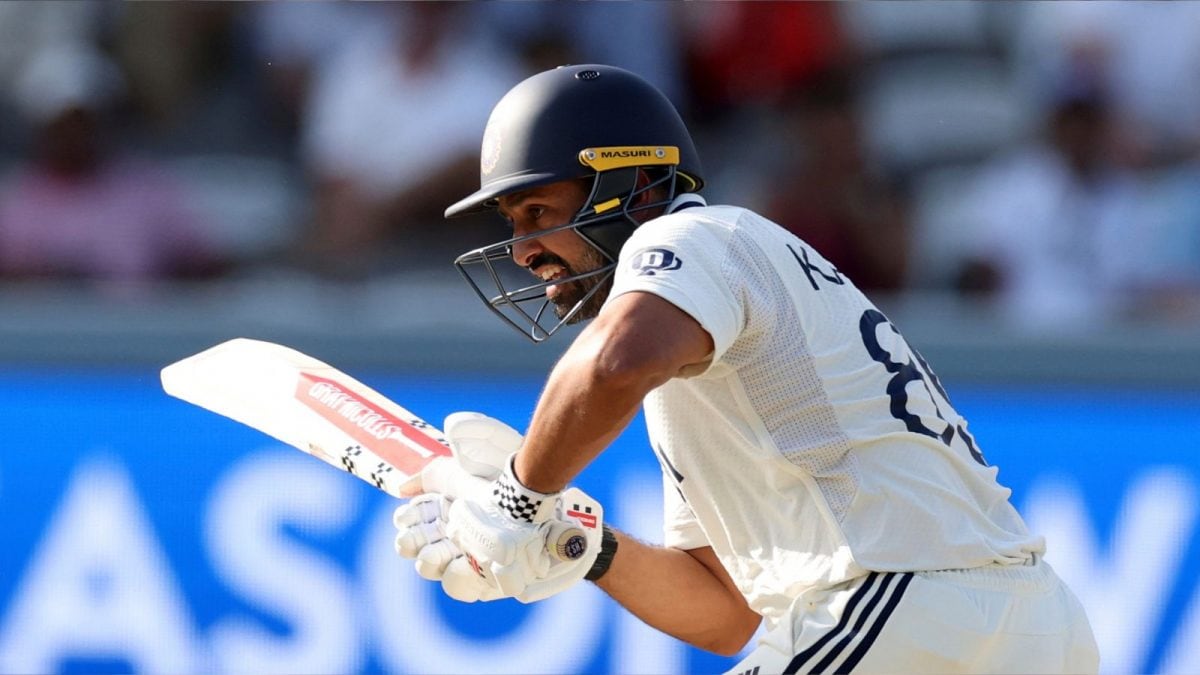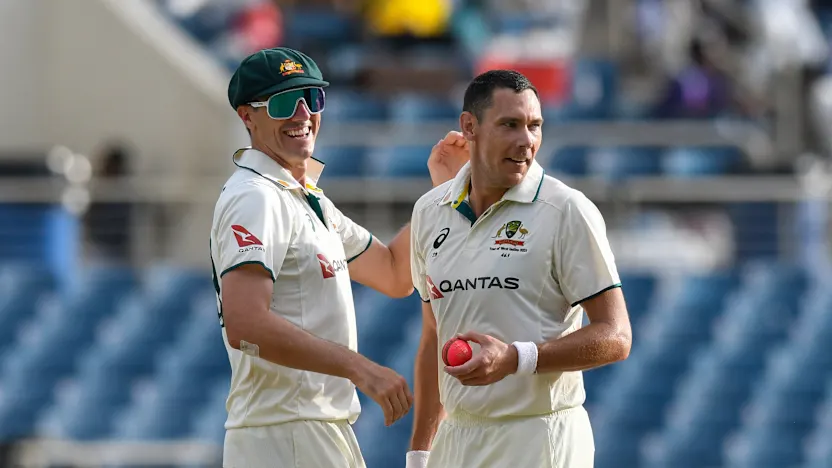Iga’s Bakery: Swiatek delivers historic double-bagel thrashing in Wimbledon final

“It seems super surreal,” Swiatek said. “Honestly, I didn’t even dream [this would happen as a child] because, for me, it was way too far. I feel like I’m already an experienced player after winning the slams before, but I never really expected this one. Disappointment: Amanda Anisimova cries after losing the women’s singles final match. Credit: AP “I feel like tennis keeps surprising me, and I keep surprising myself. I’m really happy with the whole process, how it looked like from the first day we stepped on a grass court. I feel like we did everything for it to go in that direction, without expecting it – just working really hard. “It means a lot, and it gives me a lot of experience. I’m just happy.”Loading In a cruel twist of fate, 13th-seeded Anisimova – who was contesting her maiden grand slam final – won her first-round match 6-0, 6-0 over Yulia Putintseva. The 23-year-old never got going in the final, struggling to land first serves, fluffing ball tosses and even misfiring on her trusty backhand. She had more unforced errors (14) than points won (nine) at the end of the first set. Anisimova committed 28 unforced errors in total against only eight winners as she fell well short of the impressive form she displayed in the rest of the fortnight, including outlasting world No.1 Aryna Sabalenka in the semi-finals. She led 40-15 in the third game of the match, but eventually double-faulted to lose an eight-minute game.The final may have been different, or at least far more competitive, if Anisimova had steadied and secured a service hold right there, but instead she became visibly and audibly frustrated as she came to terms with the nightmare that was playing out in front of thousands on centre court and many more beyond. Anisimova, who admitted to being “a bit frozen” with nerves, wiped tears away as she accepted her runners-up plate, then sobbed before her on-court interview, and again as she mentioned her mother, Olga, who flew in to London on the day of the final. Iga Swiatek plays a forehand against Amanda Anisimova in the final. Credit: Getty Images “To my pretty small box over there … it’s been so unbelievable to experience this with you all. You guys were that extra motivation and inspiration I needed to keep pushing me forward,” Anisimova said. “You always believed in me. My mum flew in this morning, and I definitely wouldn’t be standing here [without her]. My mum’s put in more work than I have. My mum is the most selfless person I know, and she’s done everything to get me to this point in my life.Loading “Thank you for being here and breaking the superstition of flying in. You’re definitely not why I lost today, so I’m happy I get to share this moment with you, and you get to be here and witness this in person. “Lastly, I know I didn’t have enough today, but I’m going to keep doing the work, and I hope to be back here one day.” It was a brutal afternoon for Anisimova, but a legacy-changing one for Swiatek, who had never advanced beyond the quarter-finals at SW19 before this fortnight. This is her sixth major title at 24 years of age, to go with her four at Roland-Garros and 2022 US Open triumph. The Australian Open, where she has twice lost in the semi-finals, including this year, is the final frontier for the former world No.1.Swiatek spoke during the tournament about how the Slazenger ball was finally “listening” to her in practice on the grass – and that has translated to the match court, where she dropped just one set en route to the Wimbledon title. The Pole had not enjoyed her usual level of dominance since her one-month ban expired in December for testing positive to banned substance trimetazidine. Swiatek successfully argued that the low traces of TMZ in her system owed to contamination of her melatonin medication, which she takes to ward off jet lag. Swiatek won the most lopsided Wimbledon singles final in 114 years. Credit: Getty Images She hired her new coach, Wim Fissette, during that period, a decision that came under some criticism during her relative struggles in the months since. That Swiatek bounced back to her best at Wimbledon for her first title of the year, and first major championship since Roland-Garros in 2024, is another remarkable and unlikely part of her journey.Loading She typically dominates the clay-court season like few before her, but repeatedly fell short this year after reaching the latter stages as her ranking tumbled to an unfamiliar No.8. “The thing is that we as public people and as athletes, we can’t really react to everything that’s going on. We’ve got to focus on ourselves,” Swiatek said. “Obviously, sometimes it’s easier to do that, sometimes it’s harder. For sure, the past months, how the media sometimes describe me, and I’ve got to say, unfortunately, Polish media, how they treated me and my team, it wasn’t really pleasant. “I hope they will just leave me alone and let me do my job because, obviously, you can see that we know what we are doing, and I have the best people around me. I have already proved a lot.“I know people want more and more, but it’s my own process and my own life and my own career. Hopefully, I’m going to have a freedom from them, as well, to let me do my job the way I want it.” Swiatek’s run to the Bad Homburg final, in Germany, the week before Wimbledon started seemed a significant breakthrough for her on grass, and so it proved, as her confidence and output improved the longer the tournament went. She will be back at No.3 in the rankings on Monday and is poised to again challenge Aryna Sabalenka as the WTA Tour’s best player. Marc McGowan travelled to Wimbledon with the assistance of Tennis Australia. Watch all the action from Wimbledon live & on-demand on Stan Sport, with Centre Court in 4K. Also available live and free on the 9Network and streaming on 9Now.











